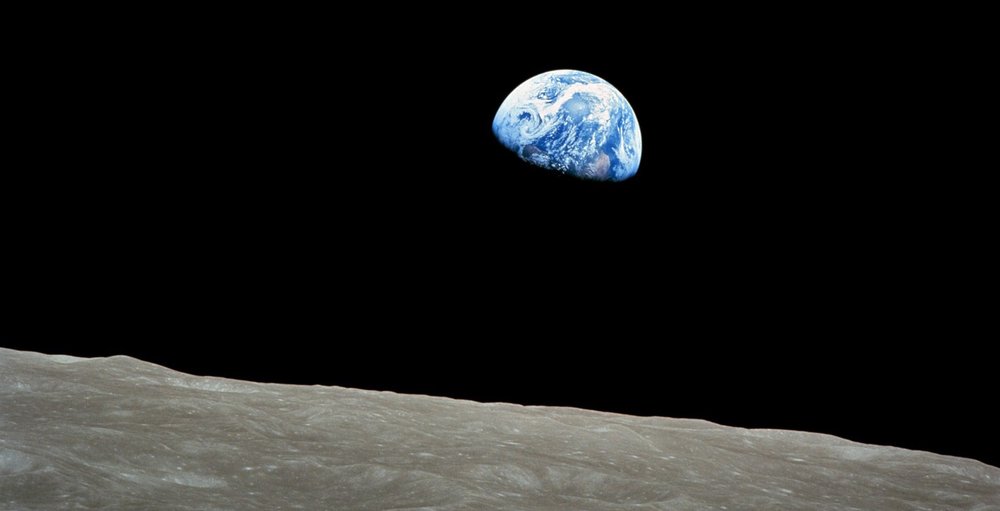
Many Adventists resemble Old
Testament Israelites in showing little interest in the Earth’s environment, and
they should take a closer look at its Creator, the first Recycler, conference attendees
heard.
The call for Adventists to
expand their sense of stewardship beyond tithe to include animals and other
elements of nature came on the last day of the church-sponsored International
Conference on the Bible and Science, which was attended by 400 Adventist
educators in St. George, Utah.
The focus on the environment
represented something of a rarity because Christians of all stripes tend to lag
behind the rest of the world in being eco-minded, and the conference marked the
first time that environmental issues were included on the agenda of this type
of Adventist gathering.
“Should Seventh-day
Adventists care for the environment more than the rest of the world?” Steve
Dunbar, a marine biologist at Loma Linda University, said during his
presentation on Aug. 24. “It’s interesting that some research has been done,
and what it has found is Christians are measurably less interested in caring
for the environment.”
Dunbar said he was reminded
of the Israelites’ complete apathy toward the environment as described by God
in Jeremiah 12:10, 11: “Many rulers have ravaged My vineyard, trampling down
the vines and turning all its beauty into a barren wilderness. They have made
it an empty wasteland; I hear its mournful cry. The whole land is desolate. And
no one even cares” (NLT).
“No one cares,” Dunbar said.
“What a statement for God to say about Israel, His chosen people. Not even one
cares.”

He said Adventists more than
anyone have reason to care about the environment because they should understand
the biblical teaching that the Earth is owned not by humans but by God.
“It’s clear through the
Bible that the Earth and everything in it is God’s,” he said.
He noted that God, in the
story of Creation in Genesis, put the first man in the Garden of Eden and told
him to work it and to keep it — to be a good steward.
“His role was to care for
the animals and the land, and this is no less our role today,” he said.
Jo Ann Davidson, a professor
at Andrews University Theological Seminary, stressed in a separate
presentation that the Bible contains a “robust doctrine” in support of the
environment from the first pages of Genesis to the last pages of Revelation,
and she said that Adventists needed to adopt “a more worldly attitude.”
“It seems curious to me and
even remarkable that Seventh-day Adventist Christians who believe in the divine
creation of this world … have rarely acknowledged that the biblical parameters
of stewardship involve more than money,” Davidson said.
The disinterest might be linked
to a lack of awareness or an attitude that the Earth is a lost cause because
the Bible teaches that it will be destroyed and re-created after Jesus’ second
coming, presenters said. Perhaps the quandary for Adventists was best summed up
by the title of a presentation by Arthur Schwarz, chair of the biology
department at Southwestern Adventist University: “The Dilemma of an Adventist
Environmentalist: Is This World My Home or Not?”
Schwarz also showed a 1968 photo taken by NASA astronaut William Anders that he said helped start the modern environmental movement: a breathtaking view of the Earth appearing to rise behind the Moon and titled "Earthrise."
Adventists have considered environment issues in the past. Notably, a
Loma Linda University Health study released last month found that a person who
reduced meat
consumption by even a little could make a significant contribution to the
environment. The research, published in the American Journal of Clinical Nutrition,
concluded that a vegetarian diet results in nearly a third less greenhouse gas
emissions than a diet with animal products.
Other than avoiding meat,
which some Adventists do anyway, they can become more environmentally friendly
by not wasting food (Davidson recalled that Jesus asked His disciples to
collect leftovers after feeding crowds), starting a church trash-collection
program to clean up streets, or recycling plastic and paper.
By recycling, Adventists
would follow the lead of God, who has put a system into nature that recycles water,
air and many other things, Davidson said.
“God was the first to
recycle,” she said. “We think we are so clever, but God recycled first.”
Dunbar asked when Adventist
attitudes would change.
“Do we hear the cry of His
oceans dealing with our pollution, of His creatures trapped in our garbage?” he
said. “Do we hear the cry of the Earth under our pollution? Do we hear the cry
of our fellow creatures when they can’t live in the habitats He has created for
them?
“The question,” he said,
“doesn’t end with, ‘Do we hear the cry?’ But the greater question is, ‘Is there
anyone who cares?’”
Loma Linda University Health study: “Vegetarian Diet Is Effective Tool Against Climate Change, Study Finds”
Commentary on LLUH study: “For Want of a T-Bone Steak the Biosphere Was Lost”
Profile of Dutch parliamentary leader Marianne Thieme, head of the Party of the Animals and an Adventist: “Dutch Politician Finds Success in Practicing What She Preaches”
2009 article by Andrews University Professor Jo Ann Davidson: “Who Cares? Environmental Ethics and the Christian”
‘God's Final Message and Your Role’
Wilson Urges All Adventists to Reaffirm Stance on Creation
Adventist Schools Called to Become Global Scientific Leaders
Neanderthals the Result of Biological Engineering?
Teachers Urged to Think Outside Evolutionary Box